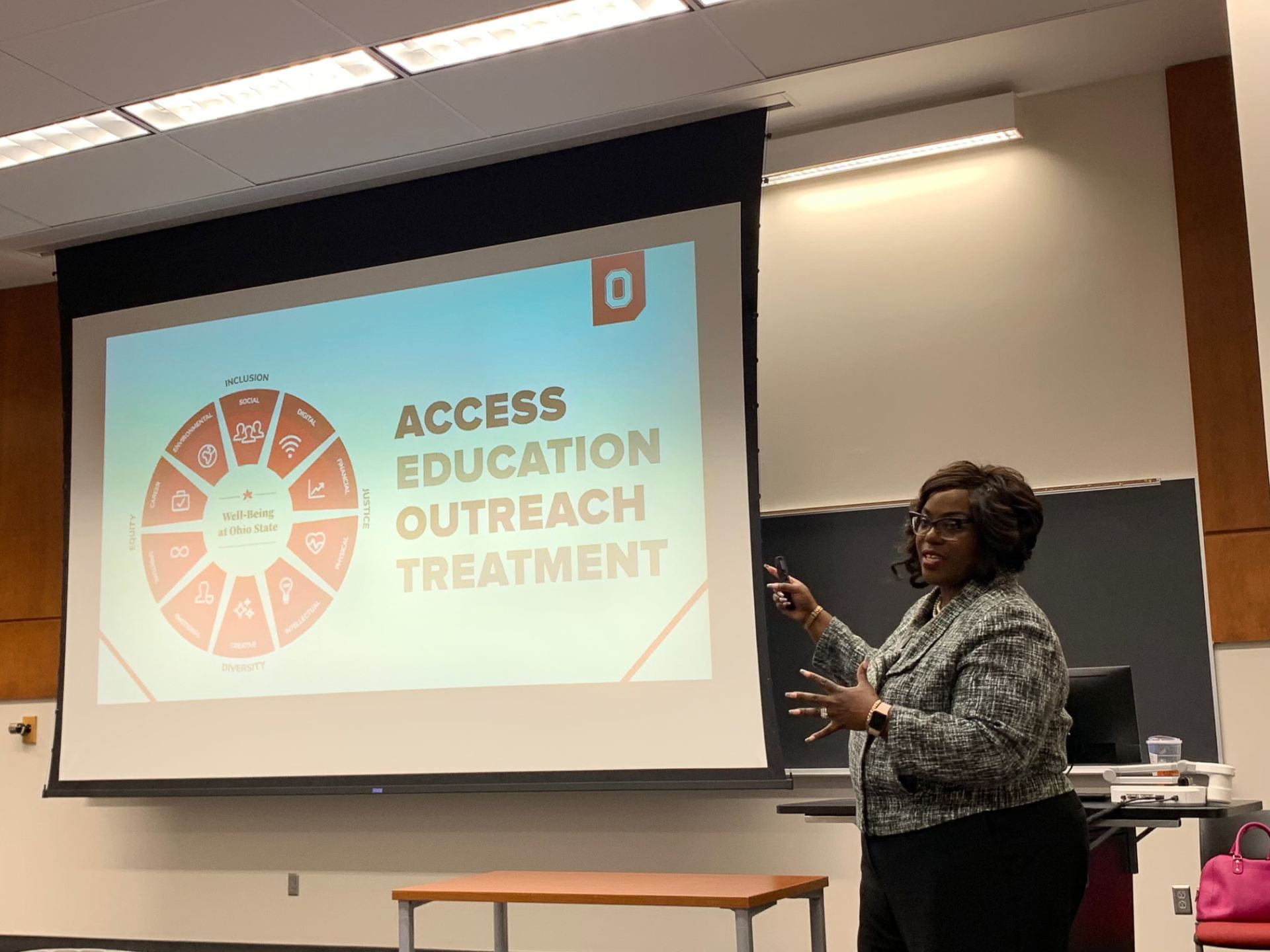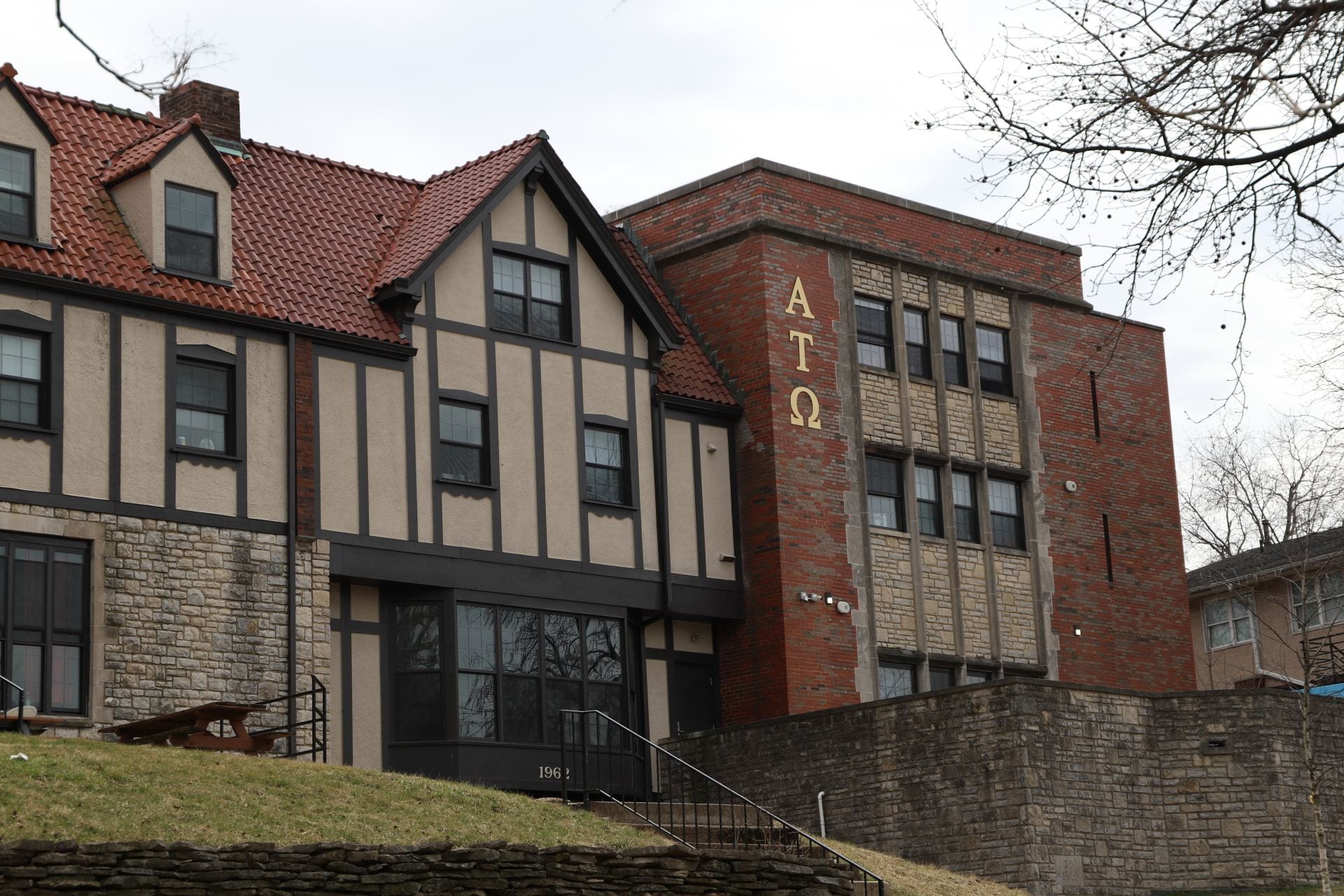
Shawnté Elbert, associate vice president for health and well-being, presenting ways Counseling and Consultation Service are catering to students of color. Credit Amani Bayo | Lantern Reporter
Counseling and Consultation Service in the Office of Student Life will introduce alternative, on-campus services for students from different backgrounds, catering to experiences not always responsive to traditional methods of care.
Shawnté Elbert, associate vice president for health and well-being in the Office of Student Life, said in a new Psychology Enrichment Program presentation titled “Dismantling Stigmas on Black Mental Health” CCS will offer a range of care beyond traditional methods to meet the needs of Black students.
Elbert said CCS will implement a cultural-based approach to counseling related to issues common in the Black community, such as the impact of low socioeconomic levels and generational trauma on mental health.
“Every aspect of public health — which is inclusive of psychology — has now started to talk about social determinants of health and how it impacts health care, mental health and well-being,” Elbert said.
Elbert said in order to meet the needs of diverse students with varying social experiences, the counseling services on campus have to be more flexible and supportive of individual needs.
“For students of color right now, they will come to campus with a higher acuity, which means more issues and counseling cannot be the only option for them,” Elbert said. “If a student says, ‘I really don’t want to do this traditional approach to care,’ why can’t we have a tarot card read on campus?”
Elbert said there is a growing number of students entering college who lack experience with any form of counseling and may be nonreceptive or hesitant to seek it. Often historically marginalized communities of color, international students, veterans and people with disabilities interact differently with mental health and face stigmatization, Elbert said.
Tahj Linton, a fourth-year in psychology, said he participated in organizing the program and knowing counselors that are aware of the needs within the Black community is encouraging to end stigmas on mental health.
“Feeling validated in our experiences just meant the world,” Linton said. “I also enter these spaces, so I can build these connections for our communities and bring up these conversations.”
Audia Fraley, an embedded CCS clinical therapist, said it is important to take cultural approaches when offering counseling services, such as connecting students with their community, group counseling and random drop-in sessions.
“CCS can tap into our list of community providers and refer you out to get this type of support that makes sense for your type of situation,” Fraley said. “This is important because it’s not a one-size-fits-all, so if it makes sense for you to be connected with the larger Columbus community, then we’re going to support you in doing that.”
Fraley said the connection between the social experiences of the Black community and their mental health is acknowledged and impacts the kind of services CCS offers.
“The Black community, like other communities of color, are more likely to experience socioeconomic disparities,” Fraley said. “When we look at Black college students, about 50 percent report that they never received any mental health education.”
Linton said whatever counseling looks like for each student — whether it be calling in to vent, sharing experiences with others or choosing a personal and informal CCS counselor — he encourages Black students to seek out those services to find what can work best for them.
“Utilize our Black spaces and our Black leaders because clearly they’re here to want to support us, because they realize our experience,” Linton said.


